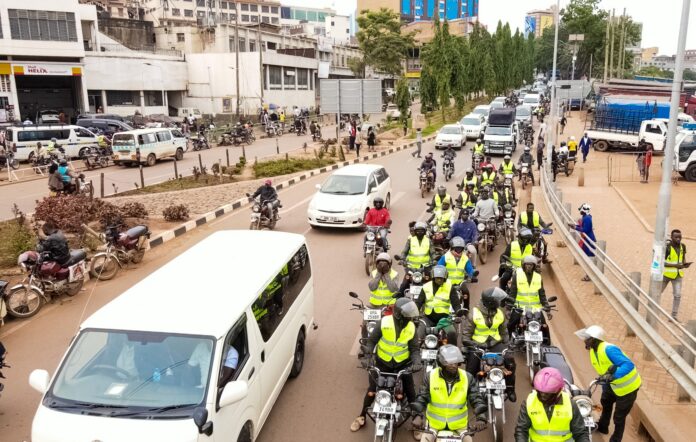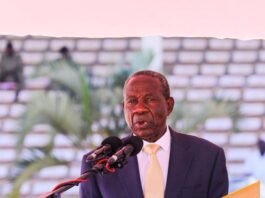Traffic law enforcement is an essential element of a safe road traffic system, intended to increase road user compliance with traffic regulations. Traffic offenders can be penalized in various ways: traffic fine, (temporary) driving license suspension, confiscation of their vehicle, penalty points, mandatory participation in a rehabilitation program, prison sentence or community service
On 20th of this month of May, the new traffic rules including the Automated Express Penalty System (EPS) officially started to be enforced. However, these rules are of no doubt the most ever brutal rules violating the standards of living of the drivers and other road users in Uganda. They have been met with a national wide criticism.
Key among the brutal traffic rules is the reduction in time within which motorists have to pay traffic fines from 28 days to 72 hours, or face an automated 50% surcharge. This is an extremely unfair and in-human policy, considering the country’s poverty rates, financial stress and low levels of savings among the population.
It should be urged that the instigators could seemingly be detached from reality in the country. Could it be because the instigators are always being driven in posh government cars, highly insured, and with Saracens escorting them?
Ugandan road users, car owners and the transport business are living in denial due to the seemingly brutal anger from policy makers, the devastating state of the roads and increased corruption among traffic officers.
In addition to the tight payment timeline, new penalties also took effect which includes SHS 500,000 fine for drinking and driving, SHS 200,000 to 600,000 or imprisonment of one or two years for un-insured vehicles or those whose insurance has expired, SHS 200,000 for driving 1-30kilometers per hour over the speed limit, 600,000 for exceeding the speed limit by 30kilometrs per hour among others
A recurring question in penalty reforms is how road users react to traffic penalties and how their reactions are affected by the severity or the type of penalty. The hike in penalties may not change anything in the users’ behaviors but rather only be intended for purposes of exploitation to increase government revenues, and kickbacks to traffic officials.
According to police, EPS revenues collected ShS 40 billion in 2024 which was short of the targeted 41.2 billion. This proves the narrative that the penalties are a form of a tax regime for government to raise revenues
However, this traffic tax regime is very inhumane and it violates all the canons and principles of a good tax regime which calls for a serious revision of the policy, which calls for the intervention of Human Rights Organizations, the executive, the parliament and trade unions. Will anything be done against these brutal traffic fines? It is very necessary!
It should be noted that evidence obtained on three continents in the field of drink-driving suggests that penalty severity does not influence re-offending behavior. In the Australian state of New South Wales, doubling the penalties for drinking and driving in 1998 did not reduce the incidences of drink-driving nor the number of crashes (Briscoe, 2004).
Also in the Netherlands, the much stricter penalties introduced in 1992 for drinking and driving (higher fines and faster suspension of driving licences) were not associated with a decrease in drinking and driving (Mathijssen, 1994).
Similarly, the laws in various US states that lay down prison sentences for first-time drink-driving offenders were found to have little or no effect on drink-driving (Wagenaar et al., 2007)
The instigators of the draconian penalties will try to justify the in-human fines by citing funny reasons like restoring sanity, reducing accidents among others. However, many other reasons cause accidents ranging from the nature/state of roads, size of roads, traffic jam and congestion, long driving hours etc Is it the end of the beginning or the beginning of the end to the in human traffic penalties?
Richard Byamukama is a lawyer, and a security studies expert.










